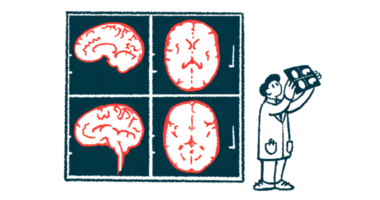Pathogens More Abundant in Mouths of Parkinson’s Patients

Jezper/Shutterstock
Opportunistic pathogens — microorganisms that live in us all, but under specific circumstances can cause diseases like pneumonia — are more abundant in the mouths of people with Parkinson’s disease than healthy individuals, a study reported.
This finding suggests that changes in oral bacteria in patients are related to disease symptoms affecting the mouth, particularly drooling and difficulty swallowing.
The study, “Oral Factors That Impact the Oral Microbiota in Parkinson’s Disease,” was published in Microorganisms.
Billions of bacteria and other microorganisms live in the human body, and are especially abundant in the mouth. There are typically hundreds of different bacterial species found along the hard tissue of teeth and nestled among the gums. Collectively, they are referred to as the oral microbiome.
While microbiomes play a critical part in health, they are also home to opportunistic pathogens. As their name suggests, opportunistic pathogens are not always dangerous, but under certain conditions — in other words, given the opportunity — they can cause disease.
Oral health is known to be poorer in Parkinson’s patients. Symptoms like tremor can make it difficult to floss or brush the teeth adequately, which — when combined with increased drooling and difficulty swallowing — can allow plaque to build in the mouth, forming a fertile breeding ground for bacteria.
Scientists at The University of Texas Health Science Center at Houston took samples of mouth bacteria from 30 people with Parkinson’s disease, and similar bacteria samples from 30 healthy individuals (controls). Both groups were matched for demographic characteristics like age (averaging about 69 years), gender (about 40% female), and race (about 70% white).
To assess the oral microbiome, the researchers used a technique called 16S rRNA sequencing. This involves sequencing a specific part of the bacterial genetic code of all of the bacteria in a sample. Then, a computer sorts through the sequences to identify the different types of bacteria, based on their unique genetic codes.
Statistical analyses compared the types of bacteria found in the mouths of people with or without Parkinson’s. Patients were found to have a higher abundance of opportunistic pathogens, such as Streptococcus pneumoniae, Mycoplasma orale, and Streptococcus constellatus.
“Our results suggest that patients with PD [Parkinson’s disease] have an oral microbiota with higher abundance of harmful bacteria compared to the controls,” the researchers wrote.
In particular, the team noted that S. pneumoniae, as its name implies, is a common cause of pneumonia. Aspiration pneumonia, which occurs when a person inhales food, drink, vomit, or saliva into their lungs, is a leading cause of death in Parkinson’s.
In addition to collecting bacterial samples, researchers asked patients and controls to complete a few questionnaires related to oral health.
Generally, those with Parkinson’s reported poorer oral health, including more plaque accumulation and more problems with drooling or swallowing. However, oral hygiene habits did not differ significantly between the two groups, and researchers did not note any differences in efficiency of tooth brushing.
This finding “supports the hypothesis that poor oral health [in Parkinson’s patients] is not due to reduced frequency or efficiency of oral hygiene, but rather is related to disease-specific factors that result in increased abundance of [bacteria] known to incite oral disease,” the researchers wrote.
Researchers also looked for connections between factors from these questionnaires and notable changes in the oral microbiome. They noted that dysphagia (trouble swallowing) and excess drooling both were associated with significant changes in the microbiome. In particular, Parkinson’s patients with dysphagia had a notably increased abundance of S. pneumoniae.
“Our findings suggest that oral-related symptoms of PD may influence the oral microbiota and account for some of the differences observed when compared to control subjects,” the scientists wrote.
Study limitations included its relatively small size, as well as the fact that disease symptoms like dysphagia were measured via questionnaire, which is inherently subjective. The scientists called for further research into the oral microbiome of Parkinson’s patients.
“By preventing aspiration pneumonia, the main cause of death in this patient population, the oral microbiota may prove to be a noninvasive, inexpensive, and life-saving biomarker,” they wrote.







